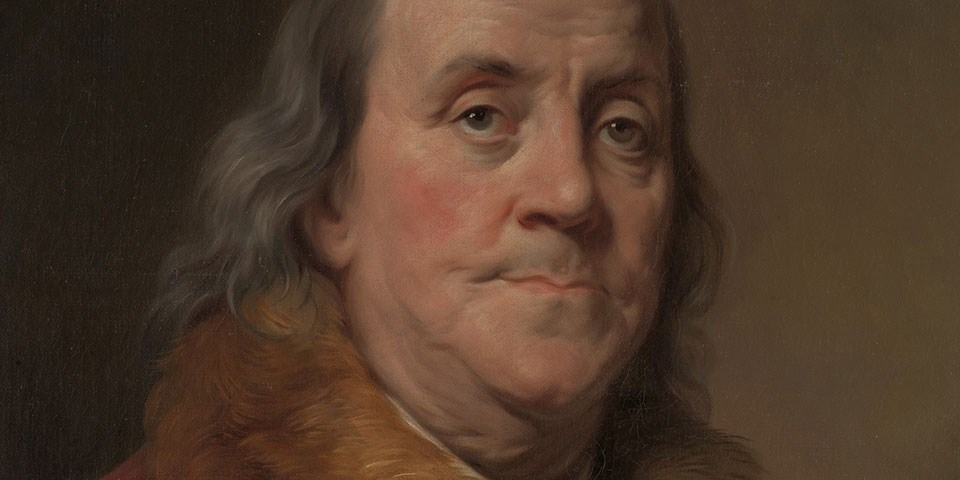Part of a series of articles titled The Constitutional Convention: A Day by Day Account for June 1787.
Article
June 28, 1787: Franklin's Proposal for Prayer

Benjamin Franklin by Joseph Siffred Duplessis, 1778. The Metropolitan Museum of Art, The Friedsam Collection, Bequest of Michael Friedsam, 1931.
"We shall be divided by our little partial local interests; our projects will be confounded; and we ourselves shall become a reproach and by-word down to future ages...I therefore beg leave to move — that henceforth prayers imploring the assistance of Heaven, and its blessings on our deliberations, be held in this Assembly every morning before we proceed to business, and that one or more of the clergy of this city be requested to officiate in that service."
--Benjamin Franklin, in James Madison's Notes on the Federal Convention
Luther Martin (MD) finished the speech he had started yesterday, arguing that the General Government should be formed for the states and therefore they should be represented equally.
Lansing (NY), seconded by Dayton (NJ), moved to amend the 7th resolution to read, "the right of suffrage in the first branch ought to be according to the rule established by the Confederation" one vote per state.
Williamson (NC) opposed the motion - if the states were equally sovereign now and parted with equal proportions of sovereignty - they would remain equally sovereign. Madison (VA) also opposed it - even Brearley (NJ) and Paterson (NJ) had agreed an equal vote was unjust to the larger states. Sherman (CT) observed that it wasn't a question of natural rights, but one of how rights may be guarded in society. The question was postponed at the request of the Deputies of New York.
Franklin (PA) then suggested in view of the small progress made and the different sentiments, that the Convention should be opened each day with prayer - as the Congress had been. Sherman seconded. Hamilton (NY) and others opposed the motion because the practice might rouse fears in the community. Williamson (NC) remarked that the Convention had no money to hire a chaplain. Randolph (VA) proposed a fourth of July sermon instead; Franklin seconded. The Convention then managed to adjourn without voting on the motion.
This motion for prayer is probably the best known of the hundreds brought before the Convention. Some of the fame of this motion may derive from its incongruous source - Benjamin Franklin was, not among the most devout or formally religious of the delegates. Some of it may derive from the timing - at the end of a day of heated, even ill-tempered, debate. Some of it probably derives from its susceptibility to improvement, such as the legend that Hamilton argued against the motion because the delegates were competent to transact the business entrusted to them and did not need to call in foreign aid. In the end, it was a firm Presbyterian minister who voiced the strongest argument. Hugh Williamson (NC) noted that the Convention had no funds and therefore couldn't offer honoraria.
Synopsis
- Delegates resumed discussion on representation in both houses
- Franklin put forth a motion for prayers, but the Convention took no vote
- William Blount (NC) wrote from Philadelphia to his brother in Washington, N.C.: "I am not at Liberty to say what is done or doing in Convention but I can say things are so much in Embryo that I could give you no Satisfactory account if I was ever so much at Liberty. It is generally supposed the Convention will continue to sit for two months at least."
- The weather was clear and pleasant.
